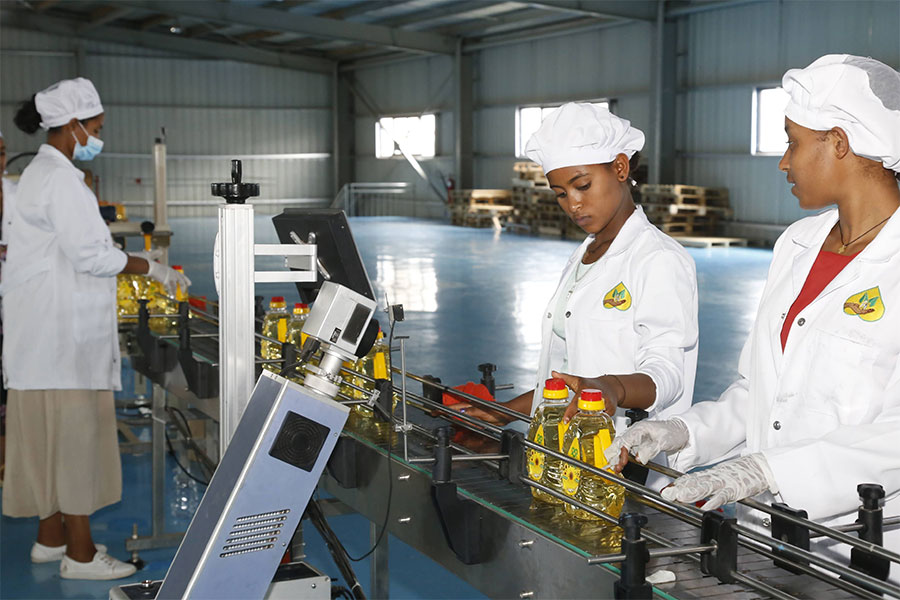
Commentaries | Aug 06,2022
Jan 5 , 2019.
A crowd, gathered outside Independence Hall in Philadelphia where representatives of 13 newly formed states had signed a historical document, greeted Benjamin Franklin, eager to know what came of the constitutional convention.
“Well, Doctor, what have we got, a republic or a monarchy?” asked a lady representing the State of Maryland. Franklin goes into history for his chilling response. “A republic, Madam, if you can keep it.”
Over two centuries later, in completely different circumstances and far away from Philadelphia, Ethiopians are now confronted with the same dilemma - whether and how to keep a republic.
Federal republics harbour a state of tension within them. The federalism part ensures that various constituencies are not suffocated, providing them with a level of self-administration at the state level. The republic part helps to secure the bond between the states through a constitutional order to ensure the rights of individual citizens and the collective aspirations of the nation-state.
With this push and pull, stability could materialise. If one force proofs stronger than the other, the structure would collapse. To protect against such a calamity, to maintain balance and contain the fallouts, the nation-state should be able to address all the tensions that arise between its constituent parts through institutions and the constitutional order.
Here, the essence should not necessarily be a democratic variable. A republic is not synonymous with democracy. In democracies, the majority directly writes the laws and exercises tyrannical powers. In republics the role is assigned to elected representatives, and a constitution is put in place to limit that power and to protect the rights of minorities and individual citizens.
Ethiopia is fortunate enough to have such a constitution and is considered a Republic.
What is lacking is strong institutions and the implementation of the checks and balances inscribed in the constitution. Despite the rhetoric of EPRDFites, the nation had a rather centralised system of government during the past quarter of a century. The increasing tensions being felt between the federated states and the federal government are punctures to the bubble that has built up in this period.
It has been evident with EPRDF extending its hegemony, turning regional states into the administrative arms of the federal government. It was an echo of the conduct of central governments in successive regimes in modern Ethiopia. Economic and social policies were often the prerogative of the centre, and administrations at the local level merely existed to facilitate and implement the policies that came from up above.
The authors of the current constitution deserve praise for attempting to redress this historical ill, if only contemporary Ethiopians know how to keep the republic. It allowed, on paper, for power to be devolved, shared, checked and challenged between the various levels of government, as well as a level of self-administration. It is a principle of self-rule in the federated state and shared one at the level of the federal government. States would have the power to set their own development and social policies, levy taxes and administer budgets the way they see fit.
Unfortunately, the authors of the constitution would fail to play by the same rules they established, becoming much more dominant than was permitted under the constitution. Development and economic policies were increasingly centralised while regional governments, form their parliaments to the judiciary, kept beating to the tune of those in Addis Abeba. The gap between what is promised and what has been delivered became a source of frustration to many who took to the highways.
It was an outcome that could be expected in any country or economy if any organisation grew too big to fail. If the same party continued to win the majority of the seats in the federal parliament, the legislative bodies of the federated states and their local governments, then it stands to reason that power gradually becomes centralised. At the apex would be the executive body of the ruling EPRDF.
Democratic reforms currently underway by the administration of Prime Minister Abiy Ahmed (PhD) should be able to correct this state of affairs. An era of healthy competition between regional governments, especially concerning the private sector investments, tourism and partnerships, can be introduced.
This would not happen overnight. The federal government first has to show its respect for the rights of the regions by shaking off the perception that it intends to usurp the constitutional mandates of the federated states. This would require restraint and compromise from the side of the federal government.
There are hopeful developments towards this in the administration’s commitment to strengthen federal institutions, especially the electoral board, the judiciary, public media and the security and intelligence apparatus as well as the bureaucracy. Efforts on the part of the public media leave much to be desired though. But the stated will to institute autonomy by those now charged to lead the judiciary and the electoral board and attempts to rid the intelligence and the military of the perception of partisanship is no less commendable.
The strengthening of these institutions should be able to reinforce the spirit and letter of the constitution, and that is what incumbents in regional governments should be supporting. It allows the federated states to fully exercise their power as well as address disagreements through the constitutional institutions, without the need to resort to violence and coercive confrontations.
This is all the more important given that the heavy hand that held back the impasses that arise in the regions, and between them, seems to be retreating. It has left the country with regions that feel strong about the level of autonomous power they feel entitled and mandated to exercise, but without the patience to see disagreements through within the constitutional order.
The increasingly adversarial relationship regional states seem to have developed can only serve to derail the most effective means of fairly settling disputes between them. It substitutes a short, winner-takes-all and violent path to the long, arduous but ultimately fair means of catering to the demands of citizens.
This means that until the disputes are addressed through the legal and legitimate process, the current constitutional order has to be respected. Each region has to be able to recognise the will, legitimacy and right of the other state to exist. So is it important to respect the rights of every citizen and a community to live and work in places of their choice and convenience.
There should be an attempt by the incumbents of each regional state to reach across the aisle, show a willingness to resolve issues mutually and condemn the loss of lives and breakdown of law and order anywhere in the country in unison. The alternative, where the federated states are intent on undermining one another, will only have adverse consequences for the whole nation. The republic could be no more.
PUBLISHED ON
Jan 05,2019 [ VOL
19 , NO
975]

Commentaries | Aug 06,2022

Commentaries | Jul 10,2021

Editorial | Feb 27,2021

Viewpoints | Jul 15,2023

Viewpoints | Feb 25,2023

Verbatim | Jun 24,2023

Commentaries | Mar 01,2024

Agenda | Jun 19,2021

Commentaries | May 14,2022

View From Arada | Mar 07,2020

My Opinion | 131974 Views | Aug 14,2021

My Opinion | 128363 Views | Aug 21,2021

My Opinion | 126301 Views | Sep 10,2021

My Opinion | 123917 Views | Aug 07,2021

Dec 22 , 2024 . By TIZITA SHEWAFERAW
Charged with transforming colossal state-owned enterprises into modern and competitiv...

Aug 18 , 2024 . By AKSAH ITALO
Although predictable Yonas Zerihun's job in the ride-hailing service is not immune to...

Jul 28 , 2024 . By TIZITA SHEWAFERAW
Unhabitual, perhaps too many, Samuel Gebreyohannes, 38, used to occasionally enjoy a couple of beers at breakfast. However, he recently swit...

Jul 13 , 2024 . By AKSAH ITALO
Investors who rely on tractors, trucks, and field vehicles for commuting, transporting commodities, and f...

Jul 6 , 2025 . By BEZAWIT HULUAGER
The federal legislature gave Prime Minister Abiy Ahmed (PhD) what he wanted: a 1.9 tr...

Jul 6 , 2025 . By YITBAREK GETACHEW
In a city rising skyward at breakneck speed, a reckoning has arrived. Authorities in...

Jul 6 , 2025 . By NAHOM AYELE
A landmark directive from the Ministry of Finance signals a paradigm shift in the cou...

Jul 6 , 2025 . By NAHOM AYELE
Awash Bank has announced plans to establish a dedicated investment banking subsidiary...